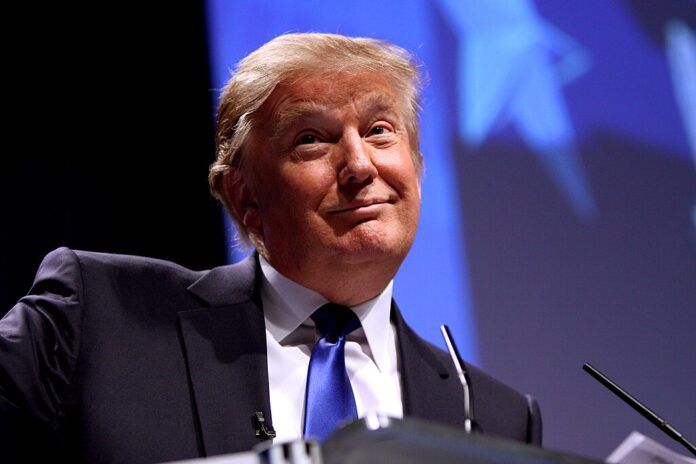With just weeks until the election, Donald Trump resorts to derogatory remarks against Vice President Kamala Harris, reviving tactics from previous campaigns
As the race for the presidency enters its final stretch, Donald Trump has ramped up his personal attacks against Vice President Kamala Harris, echoing tactics from his previous campaigns in 2016 and 2020. During two campaign events on Tuesday, Trump unleashed a barrage of demeaning insults, marking a notable escalation in his rhetoric just two weeks before Election Day.
At a rally in Greensboro, North Carolina, Trump delivered a nearly two-hour speech, where he called Harris a “low IQ individual” and mocked her for “freezing like a dog” when her teleprompter malfunctioned. He made unfounded insinuations about her potential substance abuse, questioning her mental and physical fitness for the presidency. While refraining from swearing, Trump’s remarks took a particularly derogatory turn, reflecting a pattern of increasingly personal attacks that have characterised his political style.
This latest onslaught comes as Trump grapples with tightening polls and analysts warn of narrow margins in battleground states. Despite pressure from allies to moderate his tone and concentrate on substantive issues, Trump has shown little inclination to change course. His inner circle has expressed concern that his coarse rhetoric could alienate undecided voters who might otherwise align with his political views.
Embed from Getty ImagesIn past campaigns, Trump has often resorted to baseless personal attacks when feeling pressured, as seen during the 2016 election when he accused Hillary Clinton of drug use without evidence. Similarly, in 2020, he targeted then-candidate Joe Biden with unsubstantiated claims. Now, as Harris gains traction in the polls, Trump appears to be reverting to this familiar strategy, hoping to undermine her support through outrageous claims and personal insults.
Trump’s frustrations with Harris have simmered for months. While he has often expressed contempt for her in private, he has only recently unleashed his most disparaging language publicly. Observers note that his anxieties about her financial backing and growing influence may have prompted this shift. As he struggles to identify a single, compelling line of attack against her, he has increasingly resorted to a litany of false personal allegations to attempt to diminish her standing among voters.
The former president’s approach is particularly striking given the current political climate, where many voters are seeking serious discussions about policy rather than sensationalist insults. Yet, Trump appears undeterred by the potential fallout, choosing instead to double down on his trademark style.
At his events, he has frequently emphasised a sense of urgency, claiming that America is at a crossroads and that only he can save the nation from decline. By targeting Harris, he not only seeks to weaken her candidacy but also aims to energise his base by framing the vice president as a direct threat to American values and stability.
As Trump continues to take aim at Harris, his campaign is also dealing with the implications of his comments. Political analysts suggest that while his core supporters may rally behind him, his tactics could be detrimental to his chances of winning over moderates and independents who might be put off by such vitriol.
With less than a fortnight before the election, both candidates are entering a critical phase where every word and action can significantly influence voter sentiment. Trump’s decision to ramp up personal attacks raises questions about the effectiveness of his strategy in a landscape increasingly demanding respect and civility in political discourse.
As he moves forward, the question remains whether this approach will resonate with the electorate or if it will serve to further alienate those crucial undecided voters. The stakes have never been higher, and with the election looming, every rally, speech, and comment counts.
